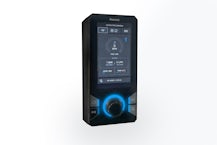- Other
What belongs in the toilet and what doesn't?
Toilet etiquette is a fundamental aspect of maintaining proper hygiene and preserving the integrity of our plumbing systems. While it may seem like a mundane topic, understanding what should and should not go into the toilet is crucial to prevent clogs, blockages, and environmental harm. This essay aims to outline the items that should be flushed down the toilet and those that should never find their way into it, promoting responsible and sustainable practices.
Appropriate items for toilet disposal
Flushing the following items down the toilet is generally considered safe and appropriate.
Human waste
Toilets are designed to handle human waste, including urine and feces. Flushing bodily waste down the toilet is the primary purpose of its existence and poses no harm to the plumbing system when done correctly.
Toilet paper
Toiletpapier is speciaal ontworpen voor gebruik in het toilet en valt snel uit elkaar wanneer het wordt blootgesteld aan water, waardoor het veilig is om door te spoelen. Kies voor matige hoeveelheden toiletpapier om verspilling en mogelijke verstoppingen te voorkomen.
Water-soluble products
Certain water-soluble products, such as biodegradable wet wipes or toilet seat covers explicitly labeled as flushable, can be disposed of in the toilet. However, exercise caution and ensure the product's packaging clearly indicates its flushability.
Items to avoid flushing
The following items should never be flushed down the toilet as they can cause serious plumbing issues, environmental harm, and strain on sewage treatment systems.
Non-biodegradable materials
Non-biodegradable items like plastic, diapers, tampons, sanitary pads, and baby wipes should never be flushed. These materials do not disintegrate and can lead to blockages, causing sewage backups and costly repairs.
Medications
Flushing unused or expired medications down the toilet contaminates water sources and harms aquatic life. Instead, consult local authorities or pharmacies to learn about appropriate disposal methods, such as take-back programs or designated drop-off locations.
Oils, grease, and food waste
Pouring oils, grease, or food waste down the toilet can clog pipes and hinder the effectiveness of sewage treatment plants. Dispose of cooking oils in airtight containers and discard food waste in compost bins or designated organic waste systems.
Chemicals and cleaning products
Hazardous chemicals, cleaning agents, or strong solvents should not be flushed. These substances can pollute water sources and disrupt the balance of ecosystems. Properly dispose of such items following local guidelines and consult hazardous waste collection centers if needed.
How to prevent?
Education and awareness
Raise awareness about proper toilet etiquette within your household, workplace, and community. Share information on the consequences of improper disposal and the benefits of responsible habits to encourage everyone to participate.
Install waste bins
Place waste bins near toilets to make it convenient for individuals to dispose of items properly. Ensure these bins are easily accessible and regularly emptied to prevent temptation for improper disposal.
Promote alternatives
Consider using bidets or water-efficient toilets, which can reduce the need for excessive toilet paper usage. Encourage the use of eco-friendly personal care products and explore sustainable options whenever possible. Let us all embrace responsible toilet habits and spread the message of proper toilet etiquette for the benefit of everyone and our planet.
- Other












